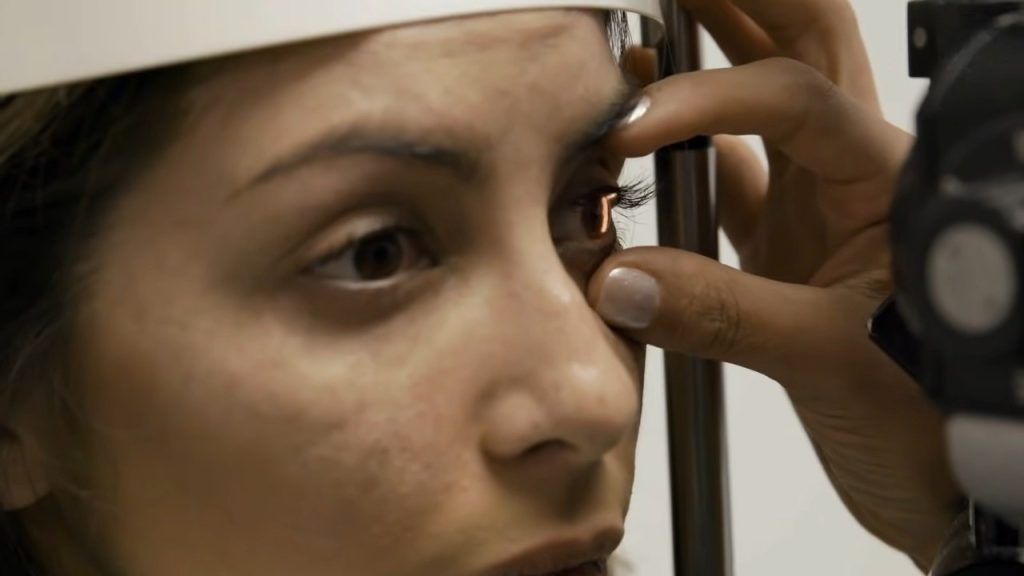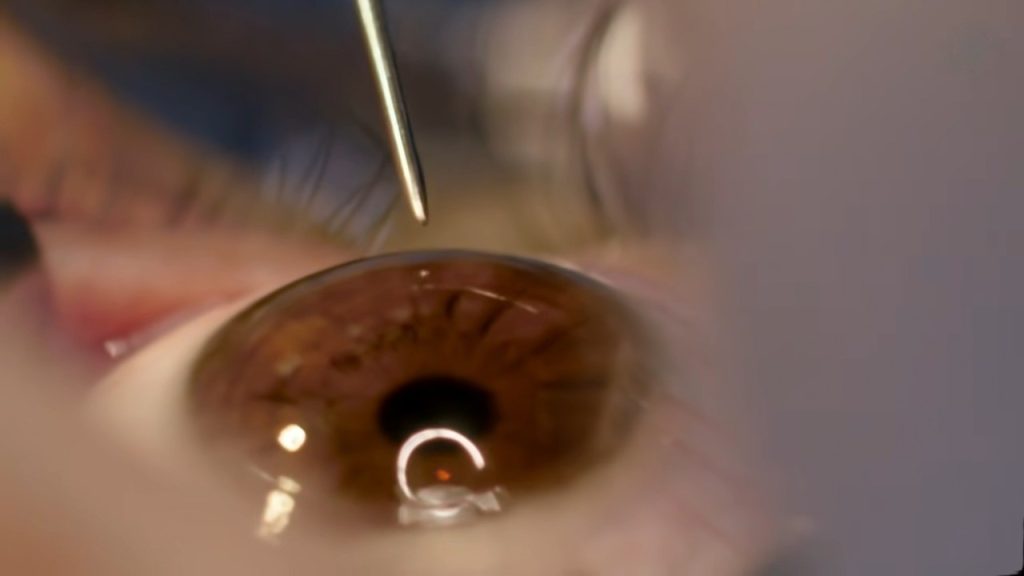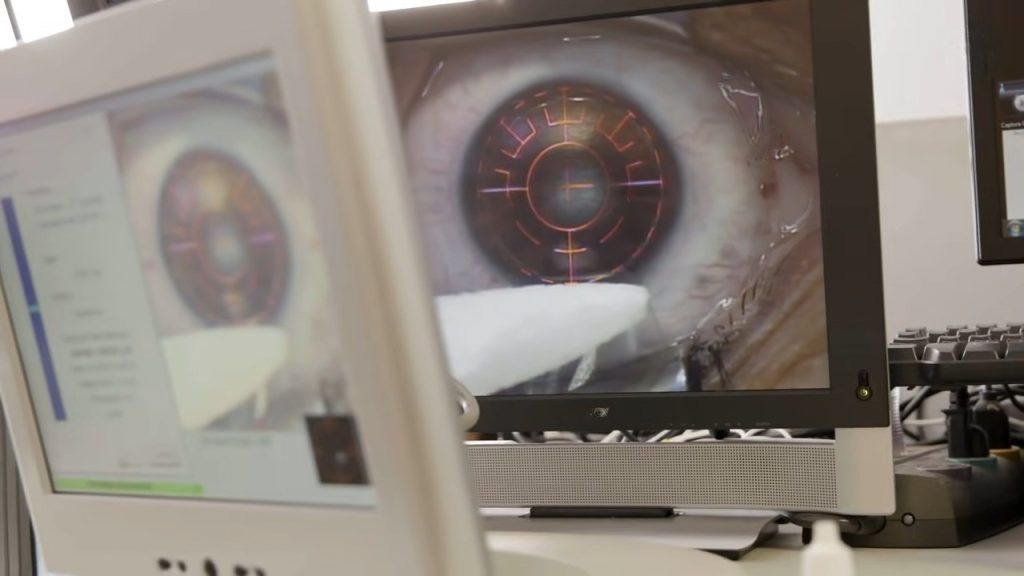Psoriasis is a chronic skin condition that affects many people worldwide. While it primarily affects the skin, it can also impact other parts of the body, including the eyes. In some cases, individuals with psoriasis may require treatment for their eyes, and this is where LASIK comes in. However, it’s important to note that individuals with psoriasis who are interested in LASIK may face some unique challenges.
In this blog post, we will delve into the connection between psoriasis and LASIK, and provide essential information that individuals with psoriasis need to know before considering LASIK surgery. We will also discuss crucial steps that patients can take to reduce the risk of complications during and after the surgery. Whether you have psoriasis or know someone who does, this post will be an informative resource to help you make informed decisions about LASIK surgery.

How LASIK Surgery Can Benefit Patients with Psoriasis
LASIK surgery can offer several benefits for patients with psoriasis who wear glasses or contact lenses. Psoriasis is a chronic autoimmune condition that can cause dry eyes, making it uncomfortable for individuals to wear contact lenses for extended periods or use artificial tears frequently. LASIK surgery can help alleviate these discomforts and offer patients clearer vision without the need for glasses or contact lenses.
Additionally, psoriasis patients may be more prone to infections due to their weakened immune system. LASIK surgery can reduce the risk of infection that comes with wearing contact lenses or glasses, as these devices can harbor bacteria and other microorganisms.
It’s important to note that LASIK surgery is not a cure for psoriasis, and it does not directly treat the skin condition. However, for psoriasis patients who are good candidates for LASIK, the surgery can improve their quality of life and make their daily activities more comfortable.
Overall, if you have psoriasis and are tired of dealing with the discomforts of glasses or contact lenses, LASIK surgery may be a viable option for you. However, it’s essential to consult with your doctor first to evaluate your candidacy and discuss any potential risks or complications that may arise.

General Benefits of LASIK
LASIK eye surgery can be a life-changing solution for those with nearsightedness, farsightedness, or astigmatism. Here are six benefits you can experience from the procedure:
- Improved Vision: The most obvious benefit of LASIK is improved vision. It corrects vision problems by reshaping the cornea. This allows the eye to focus light more accurately on the retina, resulting in clearer vision.
- Minimal Pain: Contrary to popular belief, LASIK causes very little pain. Eye drops containing a local anesthetic are administered to numb the eye, and patients may only feel pressure during the procedure.
- Immediate Results: Patients can expect significantly improved vision the day after surgery, with some not needing glasses at all. Patients can also resume normal activities quickly, with only a few restrictions.
- Cost Savings: LASIK reduces the need for eyewear, saving patients money on glasses, contacts, and solutions. Plus, frames can last much longer when worn less frequently.
- Improved Confidence: LASIK can boost self-confidence by eliminating the need for glasses, making activities like sports and work easier to carry out without hindrance.
- Allergy Relief: For those with seasonal allergies, LASIK can provide relief from itchy, watery eyes caused by wearing contact lenses.
Psoriasis patients experiencing eye problems may find relief through LASIK surgery and enjoy its benefits.

Determining Which Psoriasis Patients Can Safely Undergo LASIK
Historically, LASIK surgery has not been recommended for patients with autoimmune disorders. However, advancements in LASIK technology have made it possible for certain people with such disorders to undergo the procedure and achieve good results. This is particularly relevant for psoriasis patients who struggle with wearing glasses or contact lenses due to dry eyes or infections.
Patients with impaired immune systems face higher risks when undergoing any surgical procedure than those with healthy immune systems. LASIK is no exception, and patients with autoimmune diseases are at a greater risk for infection, dry eye, and other adverse side effects. Furthermore, they may experience a longer and more uncomfortable healing period.
However, having an autoimmune disease does not automatically preclude someone from undergoing LASIK. Candidacy depends on the type of disease and how it manifests in the body. For example, patients with psoriasis who have well-controlled symptoms may be good candidates for LASIK. Additionally, patients with rheumatoid arthritis that only affects their joints may also be acceptable candidates for LASIK, particularly if their disease is controlled by immune response modulators.
Diabetic patients were also previously not recommended for LASIK, but blade-free iLASIK may be a good option for those with stable, well-controlled blood sugar levels and no trace of diabetic retinopathy. However, healing may be slower for these patients.
It’s important to understand the potential effects of autoimmune disorders on LASIK candidacy, but it’s also essential not to let it discourage you from exploring your interest in the procedure. It’s possible that you can safely undergo LASIK, and if you are not a suitable candidate, alternative procedures may be available that can achieve similar results.
LASIK Testimonial from a Psoriasis Patient
FAQs:
Can you get LASIK if you have psoriasis?
The safety of laser treatment for psoriasis depends on the severity of the condition and the health of the treatment area. For mild psoriasis, laser treatment is generally safe, but areas with flare-ups may need to be avoided.
Can you get LASIK If you have psoriatic arthritis?
Study finds eye surgery safe for people with well-controlled PsA. 622 participants with PsA or other autoimmune diseases showed that surgery was effective and safe for those with controlled conditions.
Can you get LASIK if you have autoimmune disease?
Historically, patients with autoimmune disorders have not made suitable candidates for LASIK surgery. Advancements in LASIK technology, however, have made it possible for certain people with such disorders to undergo the procedure and achieve good results.
Can psoriasis affect your eyesight?
Uveitis is a serious eye complication that can occur in psoriasis patients and is a leading cause of blindness in developed countries. It can affect different parts of the eye such as the iris, cornea, ciliary body, vitreous body, pars plana, and retina.
What disqualifies a person from LASIK?
Certain medical conditions like autoimmune diseases (e.g. lupus, rheumatoid arthritis), immunodeficiency states (e.g. HIV), diabetes, and some medications (e.g. retinoic acid and steroids) may hinder proper healing after a refractive procedure.
Who is not a good candidate for LASIK?
LASIK is not recommended for individuals who are under 18 years old, pregnant or nursing, taking certain prescription drugs, have unstable vision, are in poor general health, have dry eye syndrome, or have unrealistic expectations.
Does psoriatic arthritis affect your eyes?
Psoriatic arthritis can cause common eye problems like eye dryness, eye pain, and conjunctivitis. However, less-frequent but serious psoriatic eye conditions, such as uveitis, can lead to inflammation in the middle layer of the eye, which, if left untreated, can cause permanent eye damage and vision loss.
Studies: